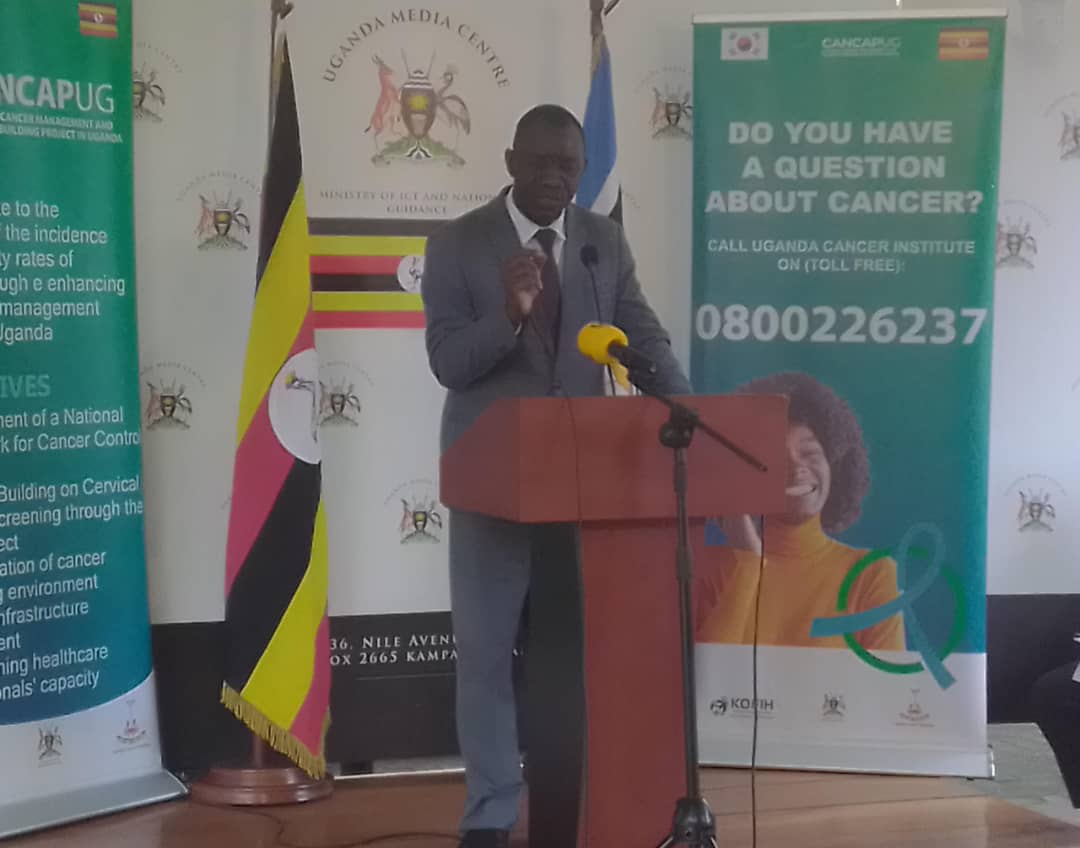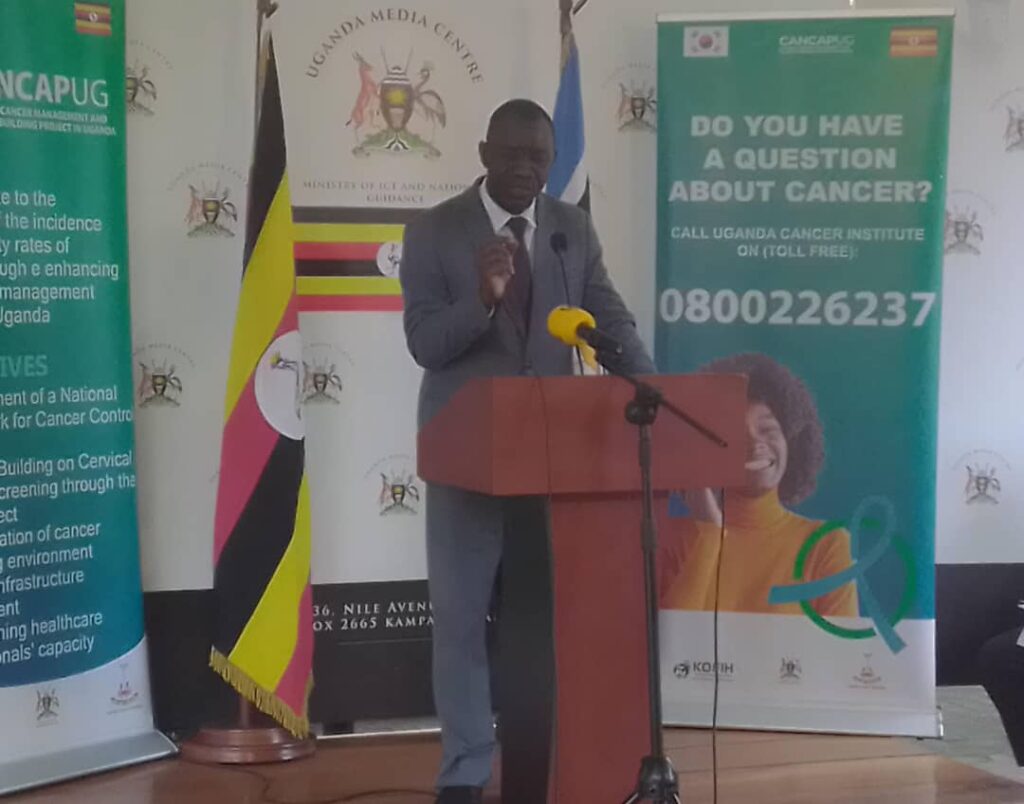
 Tiger FM
Tiger FM

 Tiger FM
Tiger FM
31 May 2025, 11:52 am

By Ronald Ssemagonja
Cervical cancer remains one of the leading causes of cancer-related deaths among women in Uganda. In response, the Uganda Cancer Institute (UCI), through its Head of Community Cancer Services, Dr. Alfred Jatho, addressed the media at the Uganda Media Centre in Kampala to explain the ongoing efforts to combat the disease.
“Uganda Cancer Institute, in collaboration with its partners including the Korea Foundation for International Health Care (KOFIH), continues to make substantial strides in the fight against cervical cancer. This is achieved through awareness campaigns, screening, and early detection initiatives in Kampala, Mbarara district, and Mbarara city. Cervical cancer remains a significant public health concern in Uganda and is the leading cause of cancer-related deaths among women in the country,” Dr. Jatho stated.
He further emphasised that, with continued efforts from the Ugandan government and other partners, significant progress has been made in screening and early diagnosis—crucial steps in reducing the burden of this preventable disease.
“Uganda Cancer Institute has taken the lead in scaling up cervical cancer prevention, screening, and diagnostic services. These include Pap smear tests, HPV and DNA testing, visual inspection with acetic acid, and colposcopy. UCI has positioned itself as a central pillar in the national cervical cancer control response, working alongside regional and local health facilities,” Dr. Jatho said. He added that UCI ensures women in urban and peri-urban areas have access to these lifesaving services.
It should be noted that the Ministry of Health and the Uganda Cancer Institute continue to benefit from the support of international partners such as KOFIH. In this regard, the acting country director, Kim Dohoon, reaffirmed their commitment to supporting Uganda’s fight against cervical cancer, which remains one of the most expensive diseases to treat globally.
UCI is dedicated to the national goal of eliminating cervical cancer as a public health problem, in line with the World Health Organisation’s 90-70-90 targets. These targets aim to ensure that:
Dr. Alfred concluded by advising Ugandans to either abstain from sex or avoid oral sex and homosexuality, and for those who are not married, to use condoms. He also urged continued screening and regular tests for early detection.